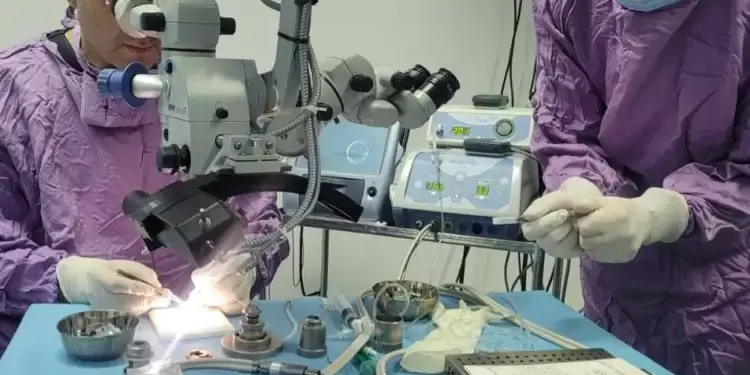The Ministry of Health announced, on April 19, 2025, on its Facebook page a first in Tunisia: a high precision cornea transplant carried out at Charles Nicolle hospital.
This major advance, made possible thanks to advanced technology, the “replication of ultra -fine cornea”, marks a turning point in the treatment of corneal pathologies in Tunisia. However, criticisms persist concerning the state of public hospitals.
The transplant was carried out by a fully Tunisian team, using modern equipment such as the microkeratoma, which allows extreme precision in the Cornee Cup. This success reduces dependence on imported cornea, accelerates treatments and reduces waiting times for patients, thus representing significant progress for the public sector.
Despite this advance, Tunisian hospitals continue to deal with major challenges. Although medicine in Tunisia makes remarkable progress, public hospitals remain under pressure, with working conditions and care far from ideal. Patients sometimes have to bring their own supplies, which arouses regular criticism of the health system.
However, recent initiatives show a desire for change. The Ministry of Health announced, last week, the installation of modern equipment in Nabeul hospitals, as well as the launch of projects similar to Gabès and Kébili.
“These efforts aim to improve access to care and modernize infrastructure, in accordance with the directives of the President of the Republic,” said the ministry. In particular, the “Health Aziza” program has made it possible to introduce advanced equipment and improve services in regions like Kébili, with significant updates in local hospitals and better accessibility of specialized care.
The best improvements include:
Activation of operating rooms and nutritional clinics at the regional hospital, supported by 8 specialized doctors and advanced equipment (saws, echo, holter, auditory audit).
Opening of ophthalmology and cardiology clinics in medical centers in Blidat, El Faouar, Souk de Douz.
Commissioning of the analyzer in Blidat and connection of the Santlab system to the souk de Douz.
Preparation of extension projects for the Douz hospital and equipment of the nursing school with simulators for advanced training.
Support for the analysis of sugar stocks in several regions.








